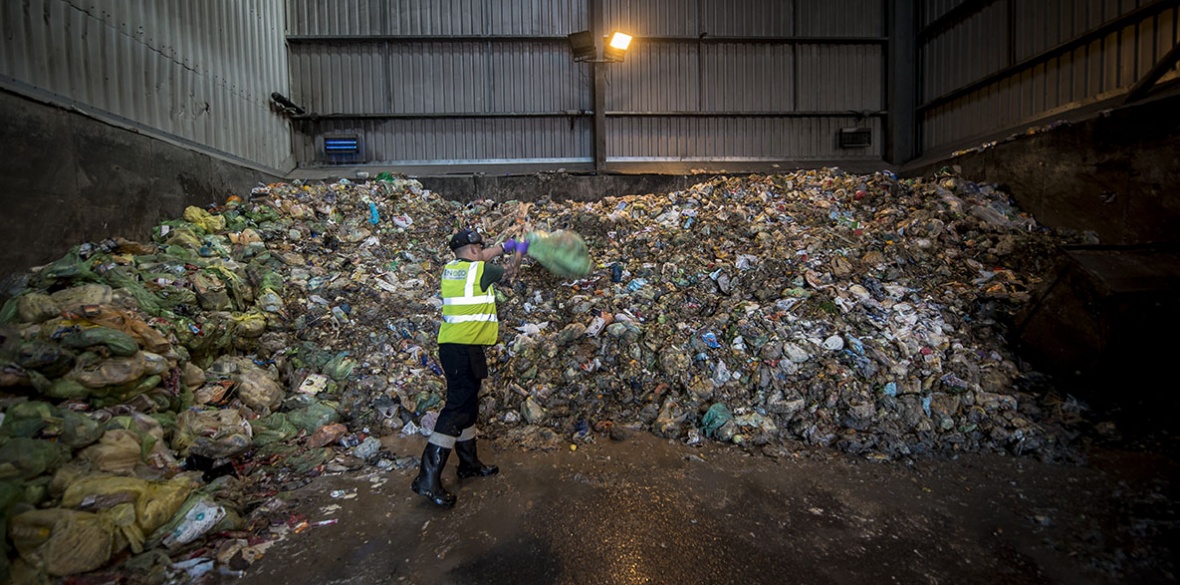This is the last article you can read this month
You can read more article this month
You can read more articles this month
Sorry your limit is up for this month
Reset on:
Please help support the Morning Star by subscribing here
THE prospectus for water and sewage services in England and Wales was clear and sparkling back in 1989.
The industry was to be privatised into the hands of 10 new business concerns.
This would bring private-sector managerial and entrepreneurial skills into the industry, we were told, along with other alleged benefits of competition.
In reality, each of the 10 new outfits was awarded a monopoly in its own region.
The interests of the consumer would come first, staff would have more say in decision-making, shared ownership would spread and three new regulatory bodies would make sure that all this would happen.
In particular, privatisation would attract the levels of capital investment needed to fix the leaky pipes and crumbling reservoirs inherited from the Victorian and Edwardian eras.
This last pledge should not have been too difficult, because Thatcher’s Conservative government had spent much of the previous decade slashing government expenditure in the industry, while also denying the public-sector water authorities access to outside lenders.
In an effort to jump-start investment, the Thatcher government then wrote off the industry’s debts, totalling £5 billion, and handed its new private owners £1.5bn of public money.
What has happened in the industry since confirms the main purpose of privatisation, namely, to enable gangs of private equity companies, investment funds, transnational corporations and assorted multimillionaires — many of them Tory Party donors — to make a mint out of managing the most precious resource on planet Earth, while doing very little else in return.
In the decades since 1989, the industry has become synonymous with inflation-busting price rises, massive boardroom bonuses, inadequate capital investment, expanding corporate debt and rampant pollution.
Water consumers in England pay some of the highest prices in Europe.
Most profits net of tax have been paid out in shareholder dividends (£57bn since privatisation). Most investment is therefore funded from borrowing and is no higher now in real terms than it reached under public ownership in the mid-1970s.
In recent days, Southern Water has been fined £90 million in a court case brought by the Environment Agency for deliberately dumping more than 16bn litres of raw sewage into the sea between 2010 and 2015 — and lying about it afterwards.
This followed an instruction from regulator Ofwat to pay customers £123m (less than last year’s profit) in compensation for the pollution of their rivers and beaches.
Southern Water is owned by Greensands, a consortium largely comprising US financial giant JP Morgan, the Swiss-based UBS asset management group, Hermes Investment Management and Whitehelm Capital of Australia.
This week, the Environment Agency reports that none of the water and sewage companies met their environmental targets in 2020.
The biggest failures were Southern Water and South West Water, while the worst polluters are now Thames (owned by a consortium of Canadian, British, Abu Dhabi and Chinese pension and investment funds) and Anglian (Canadian, British and Australian pension, equity and venture capital funds).
Yet as the sewage spillages grow — there were 400,000 in England last year — the budget of the Environment Agency continues to shrink.
So what is the Labour Party’s remedy for the water industry racket?
Until the replacement of Jeremy Corbyn as leader, the party and spokesperson Luke Pollard called for water’s return to public ownership. It was never privatised in Scotland, while in Wales it is managed by a not-for-profit body.
Now, when mass campaigning is needed to drive out the pirates, Labour maintains a loud silence. Pollard bleats only about “tighter regulation.” Starmer says nothing. They’re dead in the water.











